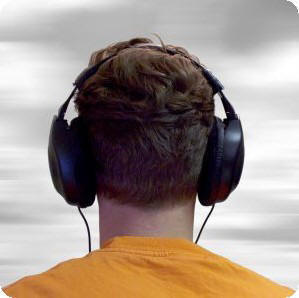Modals
Welcome to the ESL HELP! Desk, where all activities and exercises are authentic English, from learners of English. Be sure to check out our many aspects of our website, including our blog, our Vocabulary lessons, and our Library, by clicking on the many links above.
In today's lesson we continue
our unit on modals. Today's topic is the modal
would.
Before you begin the activities, you may want to begin with the first unit in this chapter, What Is a Modal? (This lesson is open to members only but membership is free!)
would
The modal would is very common and,
like most modals, carries several different meanings.
As with all modals, it should be followed by the base
form of the verb.
When should you use the modal would?
...an action that took place regularly in the past
Use it for
an action that took place regularly in the past. Used
in this way, it has roughly the same meaning as 'used
to'.
| an action that took place regularly in the past | |
| past |
When I was living in Belarus, I had many episodes that could apply to this law. A teacher in the public school could check my backpack without saying a word. And when I would ask her why she was doing this, she would look at me with a strange look. This would even happen in technical school when it was popular for government officials to listen in to citizens' phone calls. |
...with 2nd conditional
-
Use 'would' in the main clause
-
Use the past tense for the verb in the if clause.
| 2nd CONDITIONAL |
| present tense; contrary to fact |
If everyone respected
each other's privacy, it would be very nice. |
...a polite request
The modal
could also is used for a polite request,
but would is even more polite.
| POLITE REQUEST | |
| present |
|
Next...
We have a Unit Quiz and a Grammar Exercise to Review Modals.
Do you have any questions or comments about this lesson? Email us your questions about English grammar by way of our blog.
All material is copyrighted, Software for Students. Copying for PERSONAL USE ONLY. Are you a teacher who wants to use our Grammar HELP! Student Handbook lessons in your classroom? Contact Software for Students for permission to use in schools or other educational institutions.
.gif)

